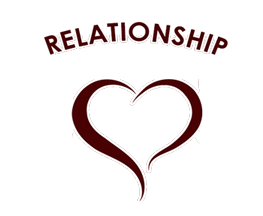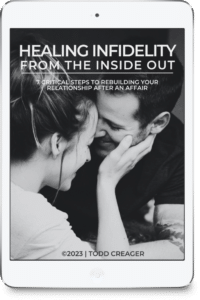When Infidelity Meets Gaslighting: Why Your Gut Keeps Telling You Something’s Wrong (And Why They Keep Saying It’s Not)
Here’s what throws most people: they think the pain of discovering infidelity is the worst part. After 30+ years working with couples, I can tell you that’s rarely true.
The worst part?
It’s usually the months—sometimes years—before discovery, when you knew something was off but kept getting told you were imagining it.
TL;DR: Unfaithful partners often use gaslighting tactics to avoid facing consequences and their own shame. Common strategies include denying obvious behavioral changes, minimizing or rewriting events (the “drip method”), reversing blame onto you, and using anger as a distraction.
If you constantly find yourself asking “Am I overreacting?” or “What’s wrong with me?” around your partner, you may be experiencing gaslighting alongside infidelity.
But here’s what most people miss:
→ Gaslighting during affairs causes its own trauma symptoms before you even discover the betrayal
→ Most unfaithful partners aren’t consciously evil—they’re in self-protective mode (which doesn’t make it less harmful)
→ The manipulation isn’t just about hiding the affair; it’s about avoiding the shame of being caught “like a little kid”
Let me be clear about scope here:
I’m focusing on the more common scenario where gaslighting emerges from self-protection rather than malicious intent.
Yes, sometimes gaslighting is intentional and calculating. But in my practice, I see far more people who are unconsciously employing these tactics because facing reality feels unbearable. That distinction matters for recovery, though both cause real harm to you.
The Mechanics of Denial: When Obvious Changes Become “Your Problem”
Your partner’s behavior has shifted. They’re staying later at work. They’ve suddenly changed their phone password after 15 years together. They’re less interested in sex with you, or weirdly, they’re suddenly more interested. The emotional temperature in your home has changed—you can feel it.
You bring it up. And then you hear: “You’re making this up. You’re overreacting. Why are you always so suspicious? My God, we’ve been married 20 years—don’t you trust me?”
This is denying the obvious, and it’s one of the first tactics unfaithful partners use. Here’s the reality check most therapists won’t tell you: the person doing this has extremely high motivation to keep things exactly as they are. They don’t want their life to blow up. They don’t want to lose their family, their reputation, their comfortable setup. And they definitely don’t want to face the shame that comes with being exposed.
So they deny. Even when the evidence is stacking up. Even when your gut is screaming at you.
What this actually does to you: You start questioning your own perception. You think “Maybe I am being paranoid.” You wonder if you need to work on your trust issues. You might even start researching whether you have an anxiety disorder. Meanwhile, the gaslighting is creating its own trauma symptoms—disorientation, self-doubt, a constant feeling of “what’s wrong with me?”
If you’re asking yourself that question repeatedly around your partner, pay attention. That’s your first warning sign.
In practice: I’ve worked with betrayed partners who sought individual therapy before discovering the affair, convinced they had a mental health problem. Their therapists sometimes reinforced this because the therapist didn’t have the full picture. The betrayed partner did have anxiety and instability—but it was a rational response to being manipulated, not a preexisting condition.
The Drip Method: How Truth Gets Parceled Out to Minimize Damage
Let’s say they’ve been caught, or partially caught. Now comes the minimizing and rewriting of events.
“Look, I didn’t have sex with them, so what’s the big deal? I was just flirting.”
Or maybe they admit to one encounter: “I had a weak night. I drank too much. It happened once. I’m so sorry.”
Then you find the texts. Months of texts. Warming each other up for three months before that “one weak night.” Maybe they only had physical contact once, but there was significant emotional connection and planning. Or maybe—and this is extremely common—there were multiple physical encounters they’re not mentioning.
This is what we call the drip method in couples therapy. They give you just enough truth to seem like they’re being honest, while withholding the parts that make them look worse. Sometimes they’ll reframe their role entirely: “She really came on strong with me. I’m a rescuer—I just couldn’t say no.”
Then you discover texts where they were doing plenty of their own pursuing. They weren’t a passive victim of someone’s aggressive pursuit. They were an active, willing participant.
Why this matters: Each time you discover another piece they withheld, you experience the trauma of discovery again. It’s not one betrayal—it becomes multiple betrayals. The lying about the lying creates its own damage, separate from the affair itself.
The resource reality: If you’re in couples therapy and your partner is drip-feeding information, I tell clients to set a deadline. “You have one week to tell me everything. After that, each new revelation I discover on my own significantly reduces the chance we can recover from this.” Most people need consequences to break through the self-protection.
Reversing Blame: When Your Legitimate Concerns Become Your “Issues”
This one does real psychological damage. Your intuition kicks in—you know something’s wrong. You raise concerns. And suddenly, you’re the problem.
“You’re crazy. You’re insecure. You’re imagining things.”
Or they go deeper into your history: “You grew up with a mother who cheated on your father. Now you think everyone cheats. You grew up in a family where nobody trusted each other, so you can’t trust me.”
I’ve had clients where the unfaithful partner suggested the betrayed partner “get some therapy” for their trust issues. While actively cheating. The audacity is stunning, but remember—this is self-protection at work. They can’t face what they’re doing, so they make it about your supposed deficiencies.
Another version: “You kept pushing me away. You rejected me sexually over and over. What was I supposed to do?”
What they leave out: maybe you were pulling away because they stopped being emotionally present. They stopped listening. They stopped showing up for you in ways that make you feel safe enough to be sexually open. So they created the distance, then used that distance to justify betraying you, then blamed you for the distance.
When this crosses into danger territory: If you find yourself changing your behavior to avoid your partner’s accusations—if you’re walking on eggshells or suppressing valid concerns because you don’t want to seem “paranoid”—that’s a sign the gaslighting is working. Your emotional safety is being compromised.
What recovery requires: The unfaithful partner has to stop making you responsible for their choices. Full stop. They can acknowledge that problems existed in the relationship. They can own that they felt rejected or disconnected. But they have to own that cheating was their choice, made by them, for their own reasons. Until they can do that, recovery isn’t possible.
Anger as Distraction: The Strategic Explosion
Some unfaithful partners have figured out that anger shuts down conversation really effectively—especially if you’re someone who responds to anger with fear or withdrawal.
You bring up your concerns. They explode. “I can’t believe you’re accusing me of this! After everything I do for this family! I work my ass off and this is how you treat me?”
Suddenly you’re backing down, apologizing for bringing it up, just trying to avoid their wrath. The topic gets dropped. Your intuitive accusations get silenced. And they’ve successfully distracted from the real issue.
This isn’t always calculated. Sometimes it’s an automatic defensive response. But calculated or not, it’s still a manipulation that keeps you from getting answers you deserve.
The pattern to watch for: If every time you raise certain topics your partner becomes explosively angry, and you find yourself dropping those topics to keep the peace, that’s a red flag. Healthy relationships can handle difficult conversations without one partner using emotional volatility to control the dialogue.
What You Need to Know About Recovery (The Part Most Articles Skip)
Here’s what I see after working with hundreds of couples dealing with infidelity and gaslighting:
Recovery is possible, but only if the gaslighting stops. And I mean completely stops. The person who betrayed has to move from self-protection mode into full accountability. That’s a painful transition—it means facing their shame, their choices, their role in hurting you. Many people can’t make that shift without professional help.
Your symptoms are real, but they’re rational responses to an irrational situation. You’re not crazy. You’re not overreacting. Your nervous system is responding appropriately to a threat. When someone you love is lying to you and making you doubt your reality, anxiety and instability make perfect sense.
The gaslighting often reveals deeper issues that led to the affair. People who can’t face their shame about cheating usually can’t face other uncomfortable truths about themselves. The inability to be accountable in one area tends to show up in other areas too. That’s what needs addressing in therapy.
You’ll know they’re serious about change when they stop defending and start being curious. When they stop explaining why you’re wrong to be upset and start asking what you need to feel safe again. When they stop minimizing and start being transparent, even when the truth makes them look bad.
If You’re Reading This and Recognizing Your Situation
Step out of the self-blame. If you’ve been asking yourself “What’s wrong with me?” or “Am I overreacting?” repeatedly, the problem isn’t you. Your instincts are working fine—they’re being deliberately or unconsciously undermined.
You’re not paranoid for noticing changes. You’re not insecure for wanting honesty. You’re not demanding for expecting your partner to face reality with you instead of making you question yours.
The path forward requires both people developing what I call emotional muscles—the capacity to stay present with pain, to face uncomfortable truths, to be curious about each other’s experience without immediately defending. The unfaithful partner needs to build the muscle to tolerate their shame without deflecting it onto you. You need support to rebuild trust in your own perceptions.
Professional help matters here. These patterns run deep, and untangling gaslighting from infidelity from legitimate relationship issues requires skilled guidance. You can’t do this alone, and you shouldn’t have to.
This is Todd Creager, making the world safe for love.
About the Author: Todd Creager has worked with couples navigating infidelity recovery for over 30 years. His approach emphasizes creating safety for both partners while maintaining accountability, with particular expertise in helping betrayed partners rebuild trust in their own perceptions after gaslighting. These insights come from direct clinical experience with couples at various stages of recovery, from immediate crisis through long-term rebuilding.
Methodology Note: The examples throughout this article come from composite cases—patterns observed repeatedly across multiple clients with identifying details altered to protect confidentiality. The tactics described represent the most common gaslighting strategies observed in practice when infidelity is present, documented across hundreds of couple sessions.
https://youtu.be/ujiqlJMi9Ys


